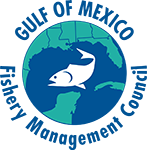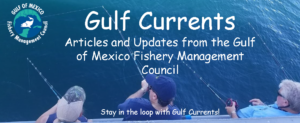
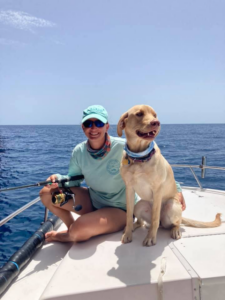
The Gulf Council is comprised of fishermen and other experts in the fishery from across the Gulf of Mexico. Drawing upon the expertise of these local fishermen ensures that federal fishing regulations are made with direct understanding of, and passion for, our fishery. The Council is honored to have Dr. Kesley Banks as one of its newest members.
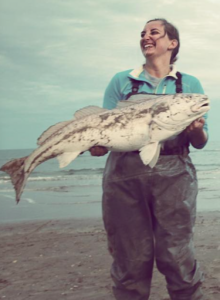
Dr. Kesley Banks’ interest in the marine environment may be genetic. Her father, a marine geologist who studies ancient oceans, imparted his enthusiasm for understanding what lies beneath the surface of the oc
ean upon both his kids from the very beginning. Kesley explains that while she prefers modern day fish, her brother bridges the gap between her’s and her father’s interests as a taphonomist – tracing the history of marine life from fossils to current form. Her mother, who works as a collage administrator, is credited with supporting her long and fruitful academic career.
Kesley spent her childhood in Tennessee, which incidentally, used to lie at the bottom of the ocean. It wasn’t unusual for her family to strike out in search of fossilized fish or chase living bass, brim, and sunfish in their spare time. In summers, they would visit the shores of the Gulf of Mexico and eventually, Kesley attended summer camp for budding marine biologists at the Dauphin Island Sea Lab in Alabama. She returned year after year as a camp counselor and eventually worked on their research vessels. Working alongside students from the University of South Alabama proved to be the perfect way for her to gain exposure to her future as a marine scientist.
Dr. Banks earned her Bachelor’s Degree in Biology from the University of Tennessee at Martin and her Masters in Environmental Science from Troy University. From there, she moved on to The Harte Research Institute for Gulf of Mexico Studies at Texas A&M University – Corpus Christi. Kesley earned her Doctorate in Marine Biology studying movement patterns and habitat use for fishery species of varying life history strategies, including Red Snapper and Shortfin Mako sharks.
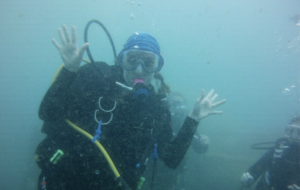
Kesley lives in Corpus Christi, Texas with her husband who runs a research vessel for the University of Texas Marine Science Institute and owns and operates his own federally permitted charter vessel. Interestingly, they met when he was the captain of a headboat she used while filming for Shark Week on the Discovery Channel.
In addition to her Council role and her current role as an Associate Research Scientist at the Harte, Dr. Banks serves on the International Commission for the Conservation of Atlantic Tunas (ICCAT) and chairs their Swordfish and Shark Subcommittee. She also serves on the Board of Directors for her local chapter of the Coastal Conservation Association.
Dr. Banks answered the following questions to provide some insight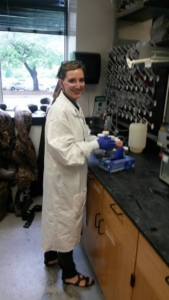 on her perspective of the Gulf fishery:
on her perspective of the Gulf fishery:
Can you share your favorite fishing memory?
When I was little, I used to fish from my grandparent’s dock on Rabbit Creek in Mobile, Alabama. I think I was about 4 or 5, and I was fishing for the usual brim or sunfish when I hooked something spectacular. I had no idea what I had at the end of my line, but I can distinctly remember the feeling of excitement- which rapidly turned to fear once I was face to face with a gar. I remember dragging it onto the dock and being both horrified and tremendously excited by its snakelike body and long tooth studded jaw. Now, I can’t help but laugh at that memory and the feeling it provoked, especially now that I’ve grown up to study sharks with much bigger, scarier teeth.
As a Council member how do you hope to improve the fishery?
Honestly, I have two big goals. First, as both a fisherman and a scientist I see a huge disconnect between the two communities and I want to bridge the gap between anglers and scientists through the management process. I think we’ll be much better at managing our resource if we work collectively. Second, I want to work to find innovative ways to manage that help us avoid huge swings in stocks and management. Achieving stability in the fishery to benefit the users and resources, with minor tweaks here and there, is a major goal of mine.
